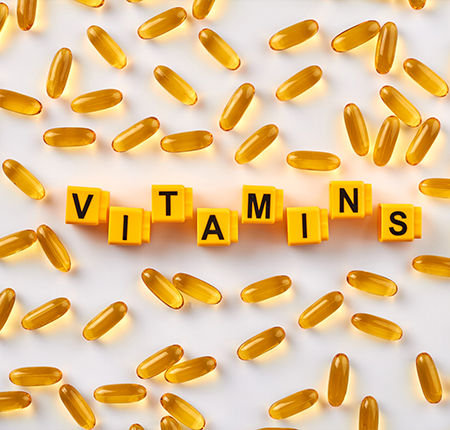
Water retention is not "an excuse", but can be a sign of a more serious health problem, or a common problem that many women face. It's uncomfortable and we know you want to get rid of the feeling of swelling or excessive bloating as quickly as possible. Fortunately, small lifestyle changes can actually help reduce the symptoms of water retention. Let us tell you more!
What is water retention?
Also known as edema, water retention is actually the excessive accumulation of fluid in the tissues, which leads to the swelling of certain parts of the body. So from the 50-60% water the human body normally has, fluid retention can add another 5-10%, leading to weight fluctuations, fatigue and discomfort.
It is a medical problem that occurs mostly in the feet and ankles, but it can also be felt in the hands and face. Standing for extended periods, pregnancy and accompanying hormonal changes, hydration levels can all cause your body to retain more water. But we tell you more about all these factors below.

Water Retention - Causes
One of the main factors leading to retention is low hydration, for example when you don't drink enough fluids. Your body needs constant and balanced hydration. And when it becomes dehydrated, it tends to retain more fluid than normal.
However, low water intake is not the only cause behind dehydration and water retention. Sometimes these things can indicate a more serious health problem. Here are some other possible sources when you experience edema:
- Flying by plane : or participating in other activities or types of transport that involve changes in pressure. The change in air pressure along with sitting for long periods of time can cause your body to retain fluids.
- Prolonged standing or sitting : Standing for extended periods of time in any position, sitting or standing, can affect blood circulation. This is very important to avoid water retention, and therefore short breaks in movement at regular intervals are recommended to get the blood circulating.
- Excessive sodium intake : Ultra-processed foods and consuming large amounts of table salt are two of the most common causes of high sodium levels in the body, leading to water retention. You can replace table salt with lower sodium salt or other seasonings.
- Certain medications : pain relievers, blood pressure and Parkinson's disease treatments, hormone or birth control pills, or chemotherapy treatments can cause water retention in the body as a side effect.
- Pregnancy : water retention in the ankles and feet during pregnancy is normal, and it comes along with the change in body weight, especially when you are not active and do not move enough.
- Heart failure : When the heart does not pump blood around the body properly (a condition called heart failure), circulation is impaired and water retention can occur as a result.
- Deep vein thrombosis : swollen legs can also be caused by a clot in the blood vessels, which is considered a medical emergency and requires a consultation as soon as possible. You also recognize venous thrombosis by signs such as skin that is warm to the touch, tenderness and pain.
- Kidney disease : When the kidneys are affected, they no longer have the same ability to filter excess fluids from the body, which leads to water retention and swelling of the feet and hands.
- Cirrhosis of the liver : Water can be retained in the body because there is too much pressure in the liver.
- Hormonal fluctuations : including changes in estrogen and progesterone levels during the menstrual cycle can lead to water retention. And when there's another, more serious health problem, hormonal imbalances can quickly lead to retention. If you want to talk more about what they are and how they affect you, I wrote everything you need to know about hormonal imbalances in a previous article on the Enroush blog.
Water retention - Symptoms
In general, water retention gives you a feeling of fatigue, "heaviness" and exhaustion, including mentally. You often notice water retention when a ring is tight on your finger because your hands are swollen. Or when you get home after a day of standing and notice that your shoes are much tighter and your feet are swollen.
You may also feel that your reaction speed is reduced and that you can no longer cope with a very active lifestyle. And in addition to these common signs of excessive fluid retention, other physical symptoms may occur, such as:
- Bloating, especially in the abdomen area, and its swelling
- Swelling of the face and hips
- Feeling of heavy legs and swollen ankles
- Joint stiffness
- Weight fluctuations
- Shiny and "fluffy", swollen skin
- The appearance of stretch marks
- Skin irritations and changes in color (less common).
Complications that can occur in case of water retention
Complications of water retention itself are not serious. A body that retains fluids for a long time, when you are unable to remove water from the body, can reach:
- Swelling of the affected body areas (feet, ankles, face, hands), which can end up being very painful and give you the feeling of "stretched skin"
- Sudden weight gain, in just a few days or weeks, and the appearance of stretch marks
- Rigid joints
The problem is that sometimes, water retention can indicate a more serious health problem, and then we are really talking about more dangerous complications. In the absence of treatment, complications may appear corresponding to the conditions that were, in fact, the basis of the retention:
- Uterine fibroids : complications can be severe menstrual pain or pain during intercourse, heavy bleeding, anemia, constipation, infertility.
- Deep vein thrombosis : The blood clot can break into pieces called emboli, which can reach and lodge in the lungs, leading to pulmonary embolism. This must be treated within minutes and can have fatal consequences.
- Heart failure : If left untreated, it can lead to blood clots, arrhythmia, pulmonary edema or muscle atrophy.
- Liver disease : can lead to complications such as low blood sugar and bacterial or fungal infections.
- Kidney disease : Can cause anemia, bone disease, heart failure, and other complications.
Treatment for water retention
Mild water retention can be eliminated on its own by simply reducing sodium intake, increasing daily physical activity, avoiding alcohol, and staying hydrated by increasing fluid intake. When the body does not return to normal on its own, the doctor may recommend:
- Diuretics, ie pills that help remove water and salts from the body through urine.
- Various supplements (such as vitamins and minerals)
- Compression socks (which can prevent fluid build-up)
- Treatments for the underlying health problems of water retention (eg hormone replacement therapy when hormone imbalances are causing the retention).
- Lifestyle change (eg by reducing salt consumption).
Home remedies for water retention
Standing with your feet up is one of the oldest home remedies for water retention. And while it doesn't go to the source of the problem to treat the cause, it can help get the blood moving and relieve discomfort (swelling and pain). But it is not the only solution.
Before we tell you, however, other home remedies, remember that it is always good to seek the advice of the doctor if you notice that your body retains water and especially if the problem persists. Your doctor can give you the correct diagnosis and identify when the cause is a more serious health problem that requires investigation. And he is also best able to recommend the right treatment for you based on your medical history, so talk to your specialist before trying any kind of remedies.
Follow a diet low in salt and rich in magnesium and potassium
While salt increases sodium levels in the body (which causes water retention), magnesium and potassium balance it out. Among the foods rich in these minerals are bananas, tomatoes, sweet potatoes, avocados and green leafy vegetables (kale, spinach, lettuce, Chinese cabbage, etc.).
Avoid very salty foods and limit your salt intake, making sure your diet is dominated by fruits and vegetables instead of ultra-processed foods. To enhance the flavors, you can use other spices instead of salt.
Add B6 supplement to your diet
When salt retention occurs especially before menstruation or due to hormonal fluctuations during the menstrual cycle, vitamin B6 supplementation can help. Research suggests that taking vitamin B6 is as effective as a complex spectrum of micronutrients in reducing PMS symptoms (including excessive water retention).

Consume protein
Proteins use water in the body and help maintain fluid balance in the body. Try to get enough protein in your diet. Protein foods include meat, eggs, dairy, soy, tofu, lentils, peas, etc.
Wear compression socks or leggings
Made to fit snugly on the leg, compression socks or leggings are designed to use compression pressure to prevent fluid build-up in the feet/ankles. Because they are tight, they may seem uncomfortable at first. But they have become increasingly popular and affordable due to their effectiveness for people with retention.
How to prevent water retention
Occasional water retention is not a serious problem – it can indicate a problem when it persists. Otherwise, it is a common condition and can happen to anyone, even within a balanced lifestyle, for example when high consumption of alcohol or salt leads to dehydration.
To prevent, as much as possible, such situations, we recommend that you pay attention to the signs of lack of water in the human body and hydrate yourself properly. Drinking enough fluids, a diet low in salt and ultra-processed foods, along with an active lifestyle can help keep fluid build-up at bay.
If you have a predisposition to water retention, you can keep a diary in which you write down the food you eat and the physical activity you do each day. This way you can track and observe from day to day when and why water retention occurs, which will help you avoid triggers and prevent discomfort.






















